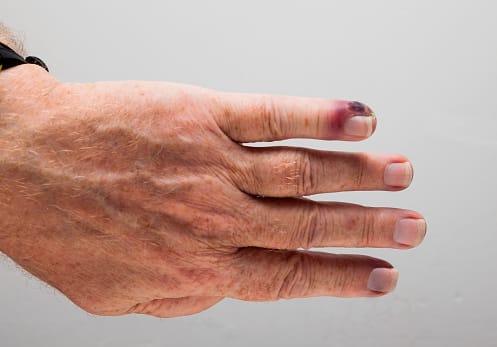Life expectancy after sepsis is a matter of serious concern.
Sepsis is a potentially life-threatening condition that occurs when an infection spreads throughout the body. Sepsis can lead to organ failure and death.
The life expectancy after sepsis is greatly reduced, but there are certain ways by which one can enhance his/ her life expectancy after sepsis.
When a wound or infection triggers the body’s immune system to go into overdrive and the body begins to attack its organs and tissues, sepsis develops.
Sepsis is a serious medical issue that needs to be treated right away. It can quickly cause tissue damage, organ failure, and death if not treated right away.
To increase the likelihood of survival, early identification and treatment are crucial.
With so much to worry about, there is a ray of hope in recovering from Sepsis.
Let’s find out what sepsis is and what life expectancy is after sepsis.
What is Sepsis?
The body’s immune system responds excessively to an existing infection to cause sepsis.
Your immune system reacts to an infection by secreting proteins and other substances to combat it.
Inflammation plays an important role in the development of sepsis, which occurs when this response becomes out of control.
Sepsis is usually caused by bacterial infections.
It can also result from other diseases such as COVID-19, influenza, and fungal infections.
Poor circulation to limbs and essential organs as a result of inflammation and blood clotting during sepsis can result in organ dysfunction and even fatality.
Annually, more than 1.5 million Americans receive a sepsis diagnosis, and about 30% of them pass away.
But how’s life after sepsis? Let’s find out the life expectancy after sepsis.
Life Expectancy After Sepsis
Many survivors of severe sepsis make a full recovery and resume their usual lives.
However, some people—particularly those who already have serious illnesses sustain organ damage that cannot be repaired.
Life expectancy after sepsis is almost 0% for some patients.
For instance, sepsis can result in renal failure that necessitates a lifetime of dialysis in a person who already has kidney dysfunction.
Extremely serious cases of septic shock can cause gangrene, which may require amputating fingers or toes or even partly or whole amputation of limbs.
Some patients who have not gone through the most severe sepsis problems could nonetheless believe that sepsis has negatively impacted their long-term health.
You might feel the bodily symptoms listed below:
- Moderate to extreme exhaustion and weakness
- Difficulty in breathing
- Bodily aches or pains in general
- Having trouble moving around
- Sleep issues Loss of appetite, lack of appetite, and strange tastes in your food
- Peelable skin that is dry and itchy
- Broken nails
- Hair fall
- Uncertain about who you are
- Disregarding how you appear
- A desire for solitude and avoidance of friends and relatives
- Bad memories and flashbacks
- Reality is unclear (e.g., uncertain about what is real and what isn’t)
- Feeling more scared than usual and anxious
- Inadequate focus
- Depressed, furious, and uninspired
- Frustration at being unable to perform basic activities
The above-mentioned scenarios are not the case or common outcomes for everyone.
These symptoms or outcomes are not gonna last forever.
One may feel differently, and there are things one can do to enhance their life expectancy after sepsis.
What Can You do to Enhance Your Life Expectancy After Sepsis?
There are a few things you may do to enhance your life expectancy after sepsis once your body has healed from the imminent threat of the condition.
You need to take a break, start to feel stronger, and start replenishing your body’s energy.
If you keep feeling worn out, there might be something else going on.
To make sure that other systems of your body, such as your thyroid, are operating normally, you might want to think about scheduling a consultation with your doctor or nurse.
By maintaining a healthy, nutritious diet and engaging in enough physical activity, you can also benefit from restoring your life expectancy following sepsis.
Be sure to find the peace you need, and don’t be afraid to say “no” to requests when you’re not ready.
Try to involve your loved ones in your recovery so they can help you and understand your requirements.
Recognize your limitations and take breaks as needed to avoid becoming fatigued.
Choose the best rehabilitation strategy and the tasks that are risk-free for you in collaboration with your healthcare provider.
Several activities may include but are not limited to:
- Set realistic, doable objectives for yourself each week, like getting dressed, using the stairs, or having a shower.
- Tell your family and friends how you are feeling.
- Keep a journal of your thoughts, challenges, and achievements. Research sepsis to better comprehend what transpired.
- Lightly exercise
- If you have any memory lapses concerning what occurred to you, ask your family to fill them in.
The experience your loved one has gone through might shock you.
Throughout the sepsis episode, you had highs and lows. As your relative fought for survival, your daily routine was significantly disrupted.
Now that your cherished one can go home, you will feel relieved.
A healthy recovery and return to normality are to be anticipated. But, if this takes longer than anticipated or if certain symptoms persist, don’t be dismayed.
Final Thoughts
Although sepsis is becoming more widely known, many doctors and therapists still fail to notice its early symptoms or its aftereffects.
To enhance your life expectancy after sepsis, you must particularly inquire about it and get in touch with home care health services providers.
If you or your loved ones are suffering from Sepsis, contact From The Heart Home Care so that you may have the proper home care service to get recovered from the sepsis and enhance your life expectancy after sepsis.
Home Care Near Me. Let’s Get Started!
Get Immediate Help with Information, Costs & Payment Options.







